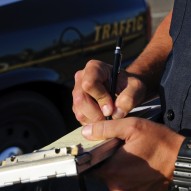Shorter Waiting Periods For Sealing Illinois Records
Effective January 1, 2016, Illinois records are eligible for sealing sooner. Illinois legislature amended 20 ILCS 2630/5.2 shortening the waiting period for sealing Illinois records from 4 and 3 years to 3 and 2 years depending on the disposition of the case. Under the new law, arrests resulting in an order of supervision are now eligible to be sealed 2 years after the termination of petitioner’s last sentence. Additionally, arrests and charges resulting in convictions, first offender probation, Section 410 probation, and eligible class 3 and class 4 felony convictions can now be sealed 3 years after the termination of petitioner’s last sentence. All arrests resulting in release without charging, charges resulting in acquittal, dismissal, or conviction when the conviction was reversed or vacated are still eligible for sealing at any...
Read MoreCrimes of Violence Convictions Become Eligible For Sealing Effective January 1, 2015
Effective Januar 1, 2015 new Illinois legislature permits crimes of violence to be sealed. Prior to the new law, no crimes of violence could be sealed unless the sentence involved supervision and the petitioner had no conviction on his/her record. Because a disposition involving probation or “time considered served” is considered a conviction, even low level misdemeanor offenders with convictions of assault or battery often found themselves with a permanent records, which could not be expunged nor sealed. Public Act 098-1009 lifts the restriction on sealing “crimes of violence” making these records eligible effective January 1,...
Read MoreFelony Records Can Be Sealed
Illinois legislature has continued its trend of expanding the list of criminal offenses eligible for sealing. Although certain Class 4 and Class 3 Felony records were already eligible for sealing, this could only be accomplished after obtaining a Certificate of Eligibility for Sealing. Effective January 1, 2014, Illinois legislature removed this extra hurdle and expanded the list of Class 4 and Class 3 felony offenses that can be sealed following the requisite waiting period, without obtaining the Certificate of Eligibility. Class 4 felony convictions now eligible for sealing: Prostitution; Possession of Cannabis; Possession of Controlled Substance; Offenses under Methamphetamine Act; Offenses under Steroid Act; Theft; Retail Theft; Deceptive Practices; Forgery Possession of Burglary Tools; Class 3 felony convictions now eligible for sealing: Theft; Retail Theft Deceptive Practices; Forgery; Possession With Intent To Manufacture or Deliver a Controlled...
Read MoreCan Traffic Records Be Expunged or Sealed?
Although expunging traffic tickets was a common practice in Illinois several years ago, especially amongst CDL drivers. This is no longer an option for Illinois drivers. As of January 1, 2010, pursuant to 20 ILCS 2630/5.2(a)(3)(B), “the court shall not order the sealing or expungement of records of minor traffic offenses. 20 ILCS 2630/5.2(a)(1)(G) defines “Minor traffic offenses” as “a petty offense, business offense, or Class C misdemeanor under the Illinois Vehicle Code or a similar provision of a municipal or local ordinance.” Consequently, ordinary traffic violation such as speeding, immaterial if the sentence is supervision or a conviction, cannot be expunged or sealed. The only remaining remedy is the lapse of time. The secretary of state purges traffic violations, which do not result in suspension, after 5-6 years and 7-8 years for violations that result in suspension. It should also be noted that other traffic violations such as driving while a driver’s license is suspended (625 ILCS 5/6-303), which is a Class A misdemeanor, can still be expunged or sealed. Reckless driving (625 ILCS 5/11-503) can also be expunged if the offense occurred before the individual reached the age of 25 years old and the offender has no other convictions for reckless driving or...
Read MoreIllinois Passes New Law Expanding Felony Records Eligible For Sealing
Pursuant to 730 ILCS 5/3-3-2(a)(10), Class 3 or Class 4 felony conviction records may become eligible for sealing after obtaining a Certificate from the Parole and Pardon Board. A petitioner is eligible to apply to the board for the certificate after 5 years have lapsed since petitioner’s last arrest, detention by any law enforcement agency, or violation of any law (excluding petty and traffic offenses). Only one Certificate for Eligibility of Sealing may be granted in petitioner’s life. If the Certificate is not granted, petitioner must wait 4 years before applying again. The approval for the Certificate requires a unanimous vote from at least 3 members of the Parole and Pardon Board Panel. Records still not eligible for Certificate of Sealing include: (1) aggravated assault, (2) aggravated battery, (3) domestic battery, (4) domestic battery, (5) aggravated domestic battery, (6) violation of an order or protection, (7) criminal offenses involving a firearm, (8) DUI, (9) aggravated DUI, (10) any crime of violence under Section 2 of the Crime Victims Compensation Act. The statute states that the board may only authorize for the sealing Class 3 or Class 4 felony records from one information or indictment, inherently suggesting that certificates may be granted for multiple felony convictions under the same indictment or information. By: Andrius...
Read MoreExpungement & Sealing Statistics – Fiscal Year 2012
Illinois law requires the Illinois State Police to publish annual statistics concerning the number of criminal records expunged and sealed each year. The numbers for Fiscal Year 2012 are both commendable and alarming. First, the Illinois State Police has done a remarkable job, entering the vast majority of orders to expunge that the agency received for the year, and thereby preventing major backlogs. On the other hand, it’s alarming that in the entire state of Illinois, only 8,620 Petitions to Expunge, were filed for the year. This number clearly indicates a lack of awareness amongst the public that pleas involving supervision, dismissal of charges, and not guilty verdicts do not on their own yield a “no record.” Every such record still needs to be expunged! The finger cannot be pointed at any one agency of division of the judicial system for this disconnect. But the lawyers, the judges, and the police, should all certainly do a better job informing the...
Read More





